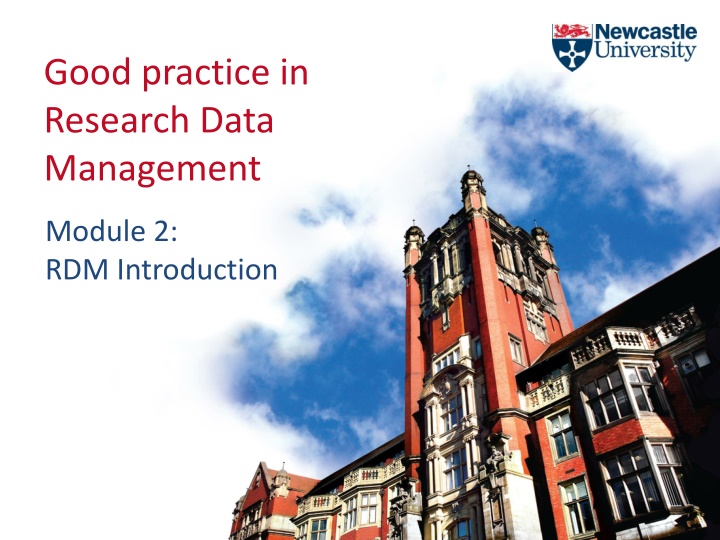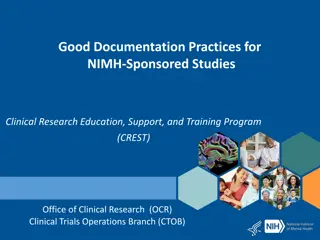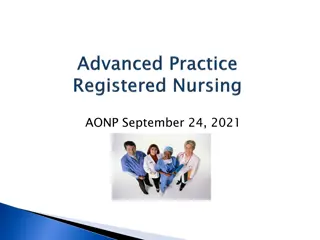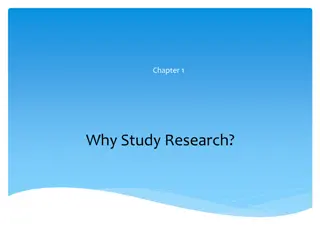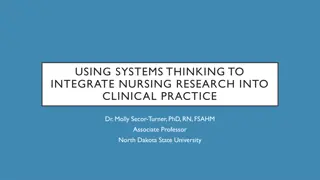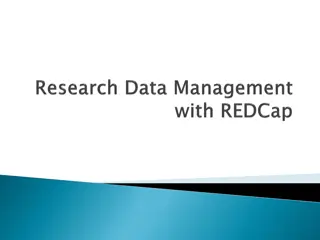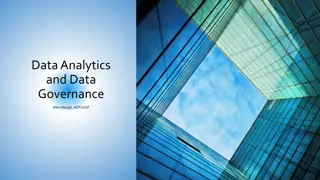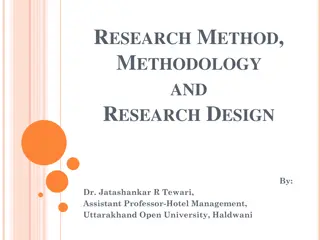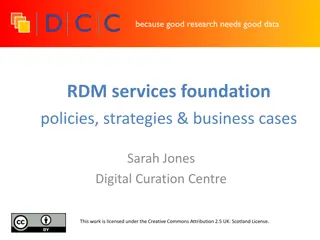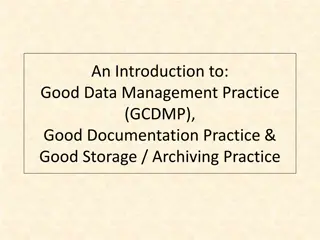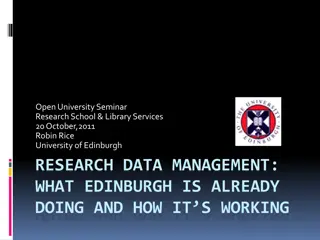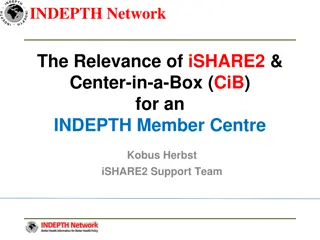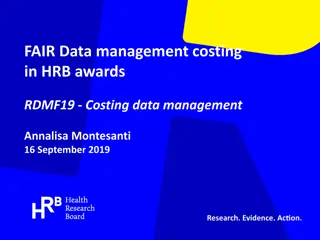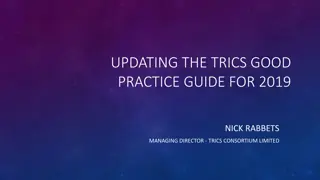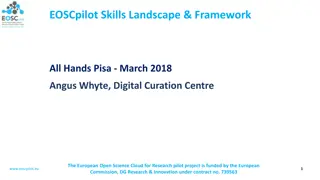Good practice in Research Data Management
This module provides an introduction to Research Data Management (RDM), covering topics such as the significance of RDM, national landscape and external drivers, benefits, and barriers. It explains what RDM is, the activities involved, and why it is important for efficient research processes, data preservation, and data reuse. The content offers insights into the holistic perspective of good data management and aligns RDM with universities' missions and external drivers like research funder policies and open data agendas.
Download Presentation

Please find below an Image/Link to download the presentation.
The content on the website is provided AS IS for your information and personal use only. It may not be sold, licensed, or shared on other websites without obtaining consent from the author.If you encounter any issues during the download, it is possible that the publisher has removed the file from their server.
You are allowed to download the files provided on this website for personal or commercial use, subject to the condition that they are used lawfully. All files are the property of their respective owners.
The content on the website is provided AS IS for your information and personal use only. It may not be sold, licensed, or shared on other websites without obtaining consent from the author.
E N D
Presentation Transcript
Good practice in Research Data Management Module 2: RDM Introduction
Topics What is Research Data Management (RDM)? Why is RDM is important National landscape and external drivers Newcastle University response/policy/implications Benefits & barriers
What is RDM? Research data management concerns the organisation of data, from its entry to the research cycle through to the dissemination and archiving of valuable results. Whyte & Tedds, 2011 http://www.dcc.ac.uk/resources/briefing-papers/making-case-rdm
RDM is about Caring for Facilitating access to Preserving Adding value to digital research data throughout its lifecycle
Activities involved in RDM Create Preserve Document Share Use Store
Your data cycle: feedback Can you improve your research data management? Where are the weak points? Are you at risk of losing data?
Holistic perspective Good data management is good for research More efficient research process Avoidance of data loss Benefits of data reuse
HE perspective Alignment with universities' missions Universities want to provide excellent research infrastructure Universities want to have better oversight of research outputs
External drivers Research funder policies Require Open Access, RDM plans or 'technical appendices' Legislation & litigious environment DPA, FOIA Open data agenda Volume of digital research data
Newcastle University perspective Significant academic and financial implications for Newcastle University In 2010-2011 direct research income was 88 million REF associated Quality-Related funding returns 35 million annually
Newcastle University perspective #2 Public funders now mandate that research data produced through their funding are available openly for verification, validation and re-use RCUK roadmap of compliance EPSRC strictest May 2012 May 2015 http://research.ncl.ac.uk/rdm/
Newcastle University perspective #3 Newcastle University is committed to the full lifecycle of research management Investment in systems Major Jisc-funded project: Iridium Documentation and support http://research.ncl.ac.uk/rdm/
Benefits and barriers of good RDM What are the benefits? For the researcher? For the "public good"? For compliance? What are the barriers?
Benefits for the researcher Increased efficiency, time saving Improved use of resource(s), reduced duplication Enhanced data security and reduced risk of data loss Stimulation of new collaborations and new research opportunities
Benefits for the "public good" Data and records are accurate, complete, authentic and reliable Research integrity and replication Better spending of the "public purse" Better research and knowledge
Benefits of compliance Meet funding body grant requirements Comply with practices conducted in industry and commerce Comply with legal and ethical considerations Comply with publisher requirements
Barriers to good RDM Individual barriers "My data doesn't fit RDM" "It's my data!" "I just want to get on with the research!" "I don't understand RDM or what to do about it" Institutional barriers Authority structures in universities Insufficient local infrastructure to support RDM requirements No checking of compliance internally Academic culture barriers Informal sharing practices already exists Lack of reuse culture Legal, ethical and commercial motives
In summary RDM concerns the careful management of data throughout its lifecycle Newcastle University is making a strong institution-wide response The benefits outweigh the barriers!
Acknowledgements Digital Curation Centre (DCC) http://www.dcc.ac.uk/training RDM Rose, Jisc project 2012-13, University of Sheffield http://www.sheffield.ac.uk/is/research/projects/rdmr ose Research data MANTRA [online course], EDINA and Data Library, University of Edinburgh http://datalib.edina.ac.uk/mantra/
